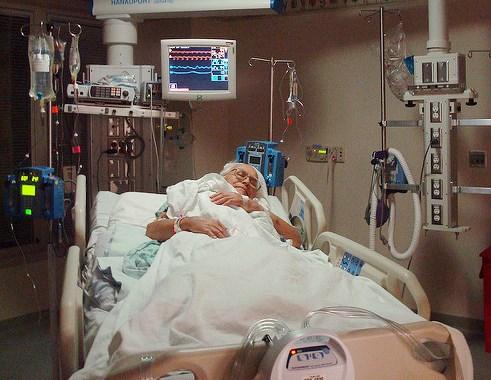Patients who have catheter-associated urinary tract infections (CAUTIs) are often treated with broad-spectrum antibiotics before the causative organism is identified, but a new study suggests that such early empirical treatment may not be beneficial, at least in older patients.
Researchers at a 900-bed hospital in Israel followed 315 CAUTI patients and found that those who received early, appropriate empirical treatment survived no longer than those who did not, according to a report yesterday in Clinical Infectious Diseases. The authors suggest that avoiding empirical antibiotic treatment in CAUTI patients may be a good antibiotic stewardship tactic.
A major cause of antibiotic use
The report notes that UTIs account for a major share of antibiotic consumption in hospitals and that empirical antibiotic treatment of CAUTI patients often involves broad-spectrums drugs because of the high prevalence of resistant bacteria in such patients.
The prospective observational study was conducted between August 2010 and February 2015 and included all adult patients with a symptomatic CAUTI that met certain criteria. Appropriate empirical antibiotic treatment was defined as matching the in-vitro drug susceptibility of the pathogen (as determined later) and given early in the illness course—before bacterial culture results were available.
The 315 patients had a mean age of 79.5 years, and most had multiple comorbidities, such as heart disease or cancer. A quarter of the group had bacteremia, and 55% were infected with multidrug-resistant gram-negative bacteria.
Patients had high mortality
The 30-day mortality rate was 30.8% (97 of 315), and half of the patients died within 82 days. The researchers determined that 49% (155 of 315) of the patients had appropriate empirical antibiotic treatment. Their analysis showed that appropriate empirical treatment did not improve 30-day survival: Mortality was 32.9% for appropriate versus 28.8% for inappropriate treatment (P = .425).
After statistical adjustments to minimize underlying differences between the groups, the odds ratio for 30-day mortality in the appropriate-treatment group was 1.39 (95% confidence interval [CI], 0.76-2.55), confirming the lack of benefit. Similarly, appropriate treatment was not associated with improved long-term survival: After adjustments, the hazard ratio for appropriate versus inappropriate treatment was 0.99 (95% CI, 0.75-1.3).
The researchers also found no link between empirical treatment and secondary outcomes, including median length of hospital stay, rate of rehospitalization within 30 days, and death or persistent symptoms after 7 days of treatment.
"The knowledge that appropriate empirical antibiotic treatment is not associated with improved survival among patients with CAUTIs allows deferral of antibiotic treatment until better understanding of the fever cause," the authors write. "This might be an important aid to antibiotic stewardship in hospitals and LTCFs [long-term care facilities]."
They suggest that patients who have indwelling catheters and present with sepsis should be fully evaluated clinically and microbiologically and that those suspected of having a CAUTI but no other source of infection can be observed without antibiotic treatment. "Sepsis trend and culture results will dictate directed antibiotic treatment," they add. "Our study suggests that such a strategy will not harm patients."
In addition, they propose that further studies should try to define patient subgroups that will benefit from early empirical antibiotic treatment.
See also:
Aug 2 Clin Infect Dis abstract

























